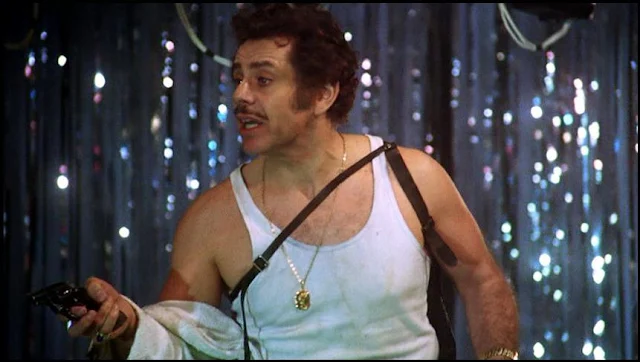 |
| Maggie Smith and Alec McCowen in Travels With My Aunt |
Graham Greene's novel Travels With My Aunt is a contribution to the "wacky aunt" genre whose most popular constituents include Arsenic and Old Lace and Auntie Mame. Greene, a more substantial writer than the authors of either of those works, added his usual layers of international intrigue and espionage to the story of a mild-mannered bank clerk dragooned into risky business by his elderly aunt -- who may in fact be his mother. The film version jettisons most of Greene's subtext and a good deal of his plot, especially toward the end of the film. The project began with director George Cukor's interest in the book and his hope that he could persuade Katharine Hepburn to play Aunt Augusta. For a time Hepburn was interested even to the point of helping write a screenplay, but the original deal fell through. It was revived for Maggie Smith, playing to her strength as a specialist in eccentric and imperious women, which helped her win an Oscar for The Prime of Miss Jean Brodie (Ronald Neame, 1969). But Smith was in her late 30s, much too young for the film's Aunt Augusta, so she is heavily made up and affects a drawn-down mouth and a fluty treble for much of the role. (She was not too young for the flashbacks that show Augusta in her earlier years -- scenes that may have would have been impossible for Hepburn.) Smith was also nine years younger than the actor playing her putative nephew, Alec McCowen, who seems a little ill at ease in some of the film and never quite makes Henry's transition from mouse to lion convincing. The best performances in the film, surprisingly, are given by the American actors, Louis Gossett Jr. as Augusta's lover Wordsworth and Cindy Williams as the hippie known as Tooley. Though Travels With My Aunt fails to capture the spirit and depth of Greene's novel, suffers from miscasting, and ends weakly, it has some amusing moments and some opulent views of Paris locations.















